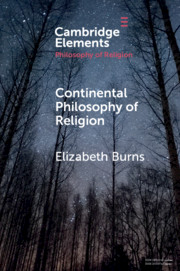Element contents
Continental Philosophy of Religion
Published online by Cambridge University Press: 14 December 2018
Summary
Keywords
- Type
- Element
- Information
- Online ISBN: 9781108558099Publisher: Cambridge University PressPrint publication: 10 January 2019
References
- 13
- Cited by



